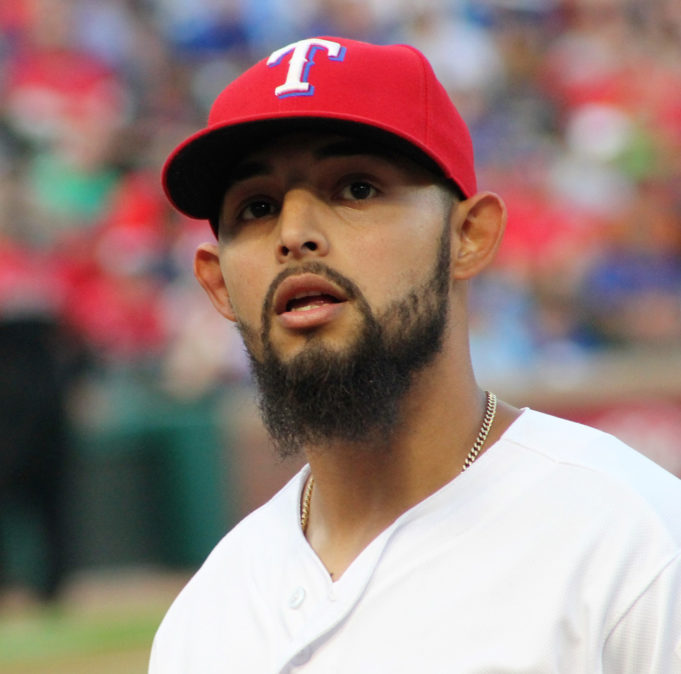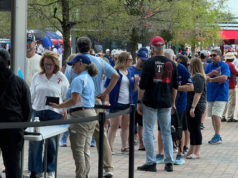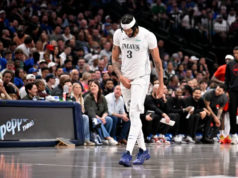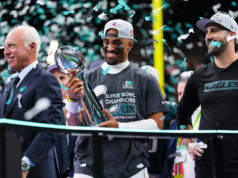The Texas Rangers’ active payroll for 2022 is slated to be $8,350,000, as it stands now. If that’s the case by Opening Day 2022, it would likely be the lowest in all of Major League Baseball — for a team playing in the country’s fifth-largest market. That number would have been the lowest for this season. If nothing changes, total payroll, which includes paychecks to players who no longer play for the club, would total $27,600,000.
Sure, the team could always sign a few free agents or make trades for higher-profile players who are paid more, just as the front office has done since, well, forever. I wouldn’t get too excited, though. Based solely on the recent behavior of ownership, I’m not sure that’s a given.
If I’m reading the tea leaves correctly, the Rangers’ ownership group led by Ray Davis and Bob Simpson does not appear to have any interest in adding payroll because that would make the team less attractive to potential buyers. The organization just christened a new ballpark, the Giant Panini Press in Arlington, which, along with gutting payroll, follows a time-honored formula for selling a major sports franchise: build a new home, cut expenses, and maximize profits. Davis and Simpson no longer care about winning as much as they do lining their pockets on the way out the door. If that sets the franchise back a few years and alienates a few fans, they’re figuring, so be it.
In a market housing the egos of Mark Cuban and Jerry Jones, Davis and Simpson are the worst sports team owners — and it’s not even close. For all of their faults, at least Cuban and Jones (Juban? Cubones?) want to win.
As the big-league team languishes in last place, with the second-worst record in baseball (two games better than the Orioles, as of this writing), the front office has fully committed to a rebuild and stripped the roster down to its studs. After last month’s trade deadline, three of the team’s four best players are gone — 28-year-old rookie Adolis Garcia has three more years of team control on a very cheap-by-baseball-standards contract — and we fans are all left to anxiously wonder whether or not the newest crop of Rangers farmhands will represent the core of the next good team.
This isn’t unusual, by the way. Conventional baseball wisdom says you trade away your older, more expensive players the moment you realize your team isn’t going to compete any time soon. After a decade-long run as a viable playoff team, the Rangers’ front office gambled on a core of players that included recently traded Joey Gallo, fighting house elf Rougned Odor, and human Oxycontin dose Nomar Mazara. For the last few years, John Daniels and new G.M. Chris Young tried to patch holes in the team with low-cost vets like Kyle Gibson, Ian Kennedy, Lance Lynn, and others. Like the three mentioned above, all of them are gone, replaced by a package of younglings who, until they produce at the big-league level, are little more than a handful of magic beans. Since we now live in an era in which baseball front office heads hoard their top prospects like so much dragon’s gold, the franchise-altering Mark Teixeira-type trades just don’t happen anymore.
What made this most recent spate of deadline deals all the more irksome is the fact that Gallo, one of the organization’s few home-grown success stories, practically begged management to ink him a new deal. Pitchers Lance Lynn and Mike Minor, both of whom appeared in All-Star games representing Texas, also expressed a desire to stay. All were sent packing. It’s also worth noting the Rangers turned down a trade that would have sent Gallo to San Diego for a highly regarded prospect, but Texas was asked to take on the $5.6 million salary of past-his-prime Eric Hosmer.
In all fairness to Davis and Simpson, the team’s total payroll for this year is about $97 million, which means your Texas Rangers have the worst payroll-to-win ratio in baseball. So, a cynic might ask, why add payroll next season if all of that money Davis and Simpson spent on this year isn’t producing wins? Couple that with the impact COVID has exacted on attendance, and, if you squint hard enough, it only makes sense to go young and let only the kids play — make next season an audition year, and keep your powder dry for 2023.
After spiking my hat, I would then ask the questions: What happens if none of the kids are ready? What if none of them can play at a high level? I’m not suggesting that none of the Rangers’ young players will become big-leaguers, but it takes a special amalgam of skill and luck to develop star players — and you need those guys to win. Which pitcher will stop a losing streak? Who can even eat innings if you’re trying to protect your young pitchers from being shelled when their stuff isn’t working? How are you going to protect leads? Who will be the bat in the lineup that makes the opposing manager change pitchers? Who is going to grab a kid by the collar and tell him he can’t be late to meetings? Who is taking their kids to see a team that loses 100 games?
Going 100% young is a recipe for sinking morale and creating a losing culture. Young players in baseball, more than any other sport, are volatile. Even the hardest-working, most talented rookie needs to see a veteran go about his business. Even the most plucky, optimistic kid can’t withstand loss after loss, at least not without someone who is not a coach there to tell them it’s not supposed to be this way.
Our best hope for the future of the Rangers is that the club sells quickly and, ideally, to a baseball fan. The Davis-Simpson combo has become just as bad as its predecessor, Tom Hicks. For the two oil-rich multimillionaires, their baseball team hobby has become a cash-grab — a way to add another few hundred million into their Scrooge McDuck money bins. They don’t care, at least not enough to compel them to reach into their deep pockets.
The only ones losing worse than the team is us, the fans.












